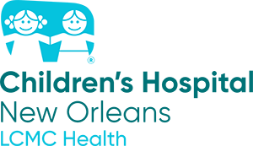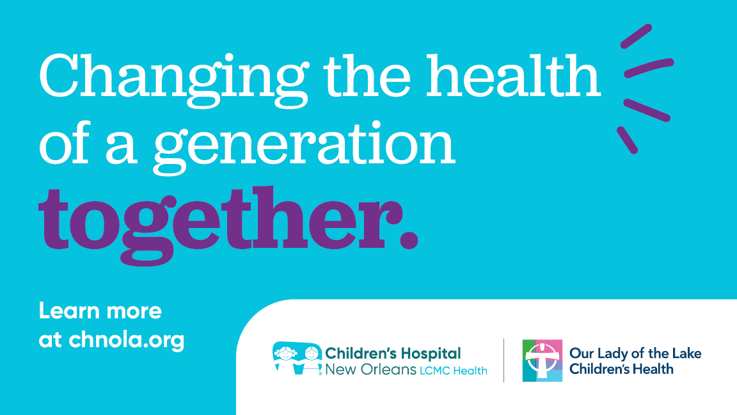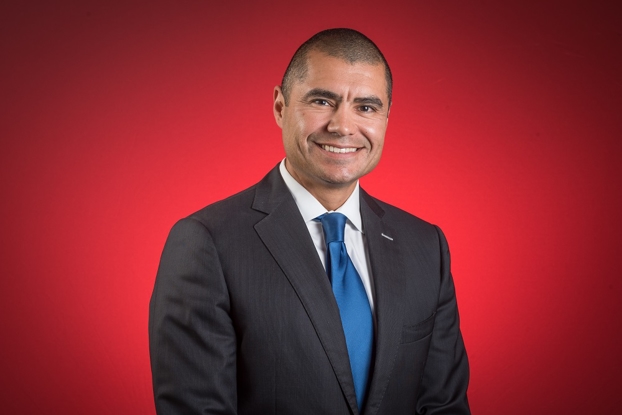Mental health programs: Why schools are a natural setting for mental health support
- Category: Thrive Kids
- Posted on:
- Written By: Tricia Lemelle, MD, MBA

With numerous societal stressors and disruptions, we have all experienced over the last few years, the demand for mental health services continues to rise, particularly among youth. As a child and adolescent psychiatrist for the Behavioral Health Center at Children’s Hospital New Orleans, I have witnessed an influx of young people struggling with their mental health. The COVID-19 global pandemic – along with other factors – certainly have taken a toll on children’s mental health and well-being.
From gun violence to school shootings and social injustices, children are intricately attuned to what is going on in the world around them whether it is through social media, watching television, or talking to friends and family. These disturbing events can potentially precipitate anxiety in children that may lead to fear of going to school, social withdrawal, decline in academic performance, maladaptively coping through substance use – and in the most severe cases – suicidal ideations and attempts if left untreated. Other life stressors, such as the death of a loved one, coping with parental divorce, school and online bullying, household dysfunction, abuse, and neglect are additional risk factors.
School-aged children are especially predisposed to high levels of anxiety and depression when there is genetic risk of mental illness compounded upon environmental stressors. Without early prevention, screening, identification, and treatment, their mental health can worsen over time.

Barriers to mental health care
Prior to COVID-19, data from The Centers for Disease Control and Prevention (CDC) discovered that one in five children suffered from mental illness, but only about 20 percent of these children received care from a mental health provider. Access to these mental health services is quite limited for various reasons.
Some families live in communities where they are unable to find mental health care due to the lack of providers in their area. Other families, particularly those in minority and low-income households, encounter financial and transportation barriers, making it more difficult for them to access mental health services. To tap into these services, they must travel far or be placed on long waitlists to receive care.
Alongside these barriers, stigma associated with mental health remains pervasive – and this is especially apparent in minority communities. According to the American Psychiatric Association, African Americans, Hispanic, and Latinx communities endorse significant depressive and anxiety related symptoms, and their suicide risk is gradually increasing over time. Studies show when students of color are treated in the medical system, they may experience discrimination, judgment, and implicit or explicit bias. As we work with minority communities, it is important for us to look back to where the distrust is coming from, and re-establish trust by remaining curious and collaborative, remove barriers, and ensure they have access to equitable care.
To support a child’s mental health, we need to meet them directly where they are.
Bringing mental health care programs to schools
School-based psychiatry is an important element of the ThriveKids Student Wellness Program, an innovative program at Children’s Hospital New Orleans that provides medical and behavioral health services, staffing support, and educational resources to schools in Jefferson and Orleans Parishes.
Since children spend one-third of their lives in the classroom, schools provide a natural setting for students to receive support in a non-stigmatizing and barrier-free environment where they have seamless access to early intervention and treatment in one location.
School-based mental health care also presents a unique opportunity for us to eliminate barriers to accessing care. Other benefits include students missing less of their classes, parents not having to call out of work to bring their child to appointments, and more opportunity for collaboration between school staff and mental health professionals.
Through our ThriveKids partnership, our behavioral health team receives referrals every month requesting psychiatry and counseling services. When a need is identified by a ThriveKids social worker and/or school nurse on campus, we provide both psychiatric evaluation and medication management services via tele-health. This service delivery model is advantageous because parents can attend the virtual appointment with their child, without taking time off from work.
By bringing mental health programs directly to students, we are removing significant barriers that make it difficult for them to access care in the first place. Transportation is a huge barrier. I work with wonderful school nurses and social workers who go the extra mile - arranging transportation to pick up medications from the pharmacies when some families are unable to do so. School staff also ensures that students and parents are connected to community resources and programs that bring a sense of connectedness and belonging to the child’s life. By doing this, we can address these mental health concerns early on, intervene on a child’s behalf, and increase the likelihood of the child growing into a successful, thriving adult.
 With the growing demand for mental health services, our psychiatry team at Children’s Hospital has partnered with many different schools in Orleans Parish to establish care for students. Since joining the team in September 2022, I have worked with various schools, including Success Prep, Mildred Osborn, Good Shepherd, and Frederick Douglass to provide school-based psychiatric evaluations and medication management to treat different types of mental health disorders, such as anxiety, depression, Attention-Deficit Hyperactivity Disorder, and Post-Traumatic Stress Disorder. I also provide counseling support for students experiencing suicidal ideations who have been referred to us after a ThriveKids social worker or school nurse recognized the early warning signs to seek help.
With the growing demand for mental health services, our psychiatry team at Children’s Hospital has partnered with many different schools in Orleans Parish to establish care for students. Since joining the team in September 2022, I have worked with various schools, including Success Prep, Mildred Osborn, Good Shepherd, and Frederick Douglass to provide school-based psychiatric evaluations and medication management to treat different types of mental health disorders, such as anxiety, depression, Attention-Deficit Hyperactivity Disorder, and Post-Traumatic Stress Disorder. I also provide counseling support for students experiencing suicidal ideations who have been referred to us after a ThriveKids social worker or school nurse recognized the early warning signs to seek help.
It is so important to provide mental health services from a systems of care approach. The adage “it takes a village” certainly reigns true as it applies to caring for children and their families. Children interact and engage with several different youth-serving entities: The education system, primary health care system, mental health system and potentially religious/spiritual care system, child welfare system, substance abuse treatment services system, juvenile justice system, and developmental disabilities system. These systems, when functioning at their best, should be youth guided and family driven. Collaboration with the education system involves communicating with many diverse partners including teachers, staff, students, parents, and their families. With everybody coming together, we can address the individualized mental health care needs of children and adolescents within the naturalistic systems and communities in which they live.
Creating a school culture of mental health awareness
When putting the pieces together to create the overall picture of a robust, school-based mental health program, another big component is the educational and training piece for school staff.
For our behavioral health team to provide mental health care and treatment for children – it is so important for schools to cultivate a safe, non-judgmental culture of mental health awareness where teachers and support staff are trained to identify the early signs of mental illness. Evidence shows that ethnic and racial minorities are often mislabeled as aggressive, violent, or combative when they are, instead, suffering from a chronic, underlying mental illness that was not identified early-on. The presence of school based mental health services has been shown to reduce the number of students being misplaced in the school-to-prison pipeline or juvenile justice system.
Part of what my colleagues and I do is visit several schools in Jefferson and Orleans Parishes where we perform student evaluations, provide ongoing psychoeducation, referrals, and mental health resources. Our aim is to equip and empower both the students and staff alike with the tools they need so they know how to respond proactively if a mental health situation arises on school campus.
Making a difference for our youth
Mental health issues do not get better on their own. The longer an illness persists, the more difficult it can be to treat and recover. Raising awareness of mental health and offering mental health services directly to students on campus is the focus of school based mental health care.
It’s incredibly rewarding when you hear from students and families – and even teachers and staff –about how grateful they are to work with our team at Children’s Hospital in bettering the lives of youth. They are appreciative of our presence in schools, and we are all happy to make a difference.
Whether you are directly involved in health care or not, we all have a role to play in supporting children by removing barriers to access, and creating communities where young people can grow and thrive. Recently, I read a report on youth mental health from U.S. Surgeon General Dr. Vivek Murthy, who expressed this collaborative notion so eloquently, when he said:
“If we seize this moment, step up for our children and their families in their moment of need, and lead with inclusion, kindness and respect, we can lay a foundation for a healthier, more resilient and more fulfilled nation.”
For more information about mental and behavioral health services offered at Children’s Hospital New Orleans, please visit our website at: https://www.chnola.org/services/behavioral-health/
For more information about ThriveKids Student Wellness Program, visit our website:
https://www.chnola.org/community/thrivekids-student-wellness/



